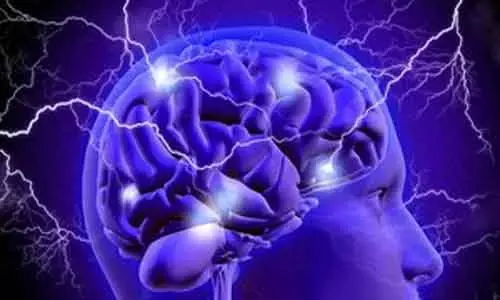- Home
- Medical news & Guidelines
- Anesthesiology
- Cardiology and CTVS
- Critical Care
- Dentistry
- Dermatology
- Diabetes and Endocrinology
- ENT
- Gastroenterology
- Medicine
- Nephrology
- Neurology
- Obstretics-Gynaecology
- Oncology
- Ophthalmology
- Orthopaedics
- Pediatrics-Neonatology
- Psychiatry
- Pulmonology
- Radiology
- Surgery
- Urology
- Laboratory Medicine
- Diet
- Nursing
- Paramedical
- Physiotherapy
- Health news
- Fact Check
- Bone Health Fact Check
- Brain Health Fact Check
- Cancer Related Fact Check
- Child Care Fact Check
- Dental and oral health fact check
- Diabetes and metabolic health fact check
- Diet and Nutrition Fact Check
- Eye and ENT Care Fact Check
- Fitness fact check
- Gut health fact check
- Heart health fact check
- Kidney health fact check
- Medical education fact check
- Men's health fact check
- Respiratory fact check
- Skin and hair care fact check
- Vaccine and Immunization fact check
- Women's health fact check
- AYUSH
- State News
- Andaman and Nicobar Islands
- Andhra Pradesh
- Arunachal Pradesh
- Assam
- Bihar
- Chandigarh
- Chattisgarh
- Dadra and Nagar Haveli
- Daman and Diu
- Delhi
- Goa
- Gujarat
- Haryana
- Himachal Pradesh
- Jammu & Kashmir
- Jharkhand
- Karnataka
- Kerala
- Ladakh
- Lakshadweep
- Madhya Pradesh
- Maharashtra
- Manipur
- Meghalaya
- Mizoram
- Nagaland
- Odisha
- Puducherry
- Punjab
- Rajasthan
- Sikkim
- Tamil Nadu
- Telangana
- Tripura
- Uttar Pradesh
- Uttrakhand
- West Bengal
- Medical Education
- Industry
Post stroke seizures linked to increased death and disability

DALLAS, Feb. 12, 2020 -- Post-stroke seizures have been linked to death or disability up to one year in a new study.
Researchers have found that in adults who have had a severe ischemic stroke,seizures may be linked to a higher risk of death or disability . The research shall be presented at the American Stroke Association's International Stroke Conference 2020 - Feb. 19-21 in Los Angeles.
Ischemic stroke occurs when blood vessels leading to the brain are blocked. Seizures are abnormal brain activity that may cause uncontrollable shaking movements, loss of consciousness and confusion. Ischemic stroke patients who had seizures within seven days after their stroke were at higher risk of seizure recurrence and of being diagnosed with epilepsy.
"In the United States, stroke is the most common cause of epilepsy in adults. In Mexico, stroke is now the leading cause of epilepsy in adults as well," said Erwin Chiquete, M.D., Ph.D., lead study author and a neurologist and researcher at The Salvador Zubiran National Institute of Medical Sciences and Nutrition in Mexico City. "However, we suspect that seizures and epilepsy in stroke patients are still under-recognized by physicians."
In this study, researchers identified risk factors that predict the possibility of developing seizures or epilepsy (recurring seizures) following a severe stroke, and then assessed the impact of post-stroke seizures on death or disability up to one year after stroke.
Researchers analyzed electronic medical records data of 1,246 hospital patients without epilepsy upon admission, aged 18 to 94 (85% over age 40) and treated for acute ischemic stroke in 59 centers located in Mexico. After following the patients for 12 months, researchers found:
8% of stroke survivors suffered acute seizures within a week of their stroke, and almost 5% of these patients had at least one more seizure during the 12-month follow-up period.
Patients 18 to 40 years old were the most vulnerable group of stroke survivors. More than 13% of these patients developed recurrent seizures and were diagnosed with epilepsy.
Patients younger than 65 were 69% more likely to develop seizures than older patients.
The larger the injury to the brain from the stroke, the greater the likelihood of having a seizure. The odds of developing seizures were more than two times higher in people with severe brain injury from stroke and in those who had a second stroke.
Those who developed acute seizures were 37% more likely to die or develop physical and/or mental disabilities within one year following their stroke.
Other factors that significantly increased risk of death or disability included being over age 65, severity of stroke, heart failure and atrial fibrillation.
"We think that the secondary prevention of ischemic stroke and controlling seizures with anti-epileptic medication during the twelve months after stroke are very important to prevent death and to decrease disability," Chiquete said. "Our research suggests that severe ischemic stroke can cause epilepsy in a higher percentage of patients than we originally thought or has been shown in previous studies."
For further reference log on to:
Dr Kamal Kant Kohli-MBBS, DTCD- a chest specialist with more than 30 years of practice and a flair for writing clinical articles, Dr Kamal Kant Kohli joined Medical Dialogues as a Chief Editor of Medical News. Besides writing articles, as an editor, he proofreads and verifies all the medical content published on Medical Dialogues including those coming from journals, studies,medical conferences,guidelines etc. Email: drkohli@medicaldialogues.in. Contact no. 011-43720751


